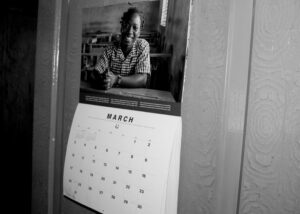Dealing with mental illness is ‘hard enough already’
Thank you for the recent special issue of Canadian Mennonite on “mental health.” It is an important topic if we are to love each other well. Mental differences are invisible but they can lead to very different ways of interacting with other people and the world around us.
By every observable measure, I am normal, have a successful career with a high-level position and public recognition, amazing children active in church and now university, physical health and so on. Yet I struggle with what probably should be labelled “depression.” Even when something good happens, it takes just a short time before I start to think that things aren’t going well. There are times that getting four to five decent hours of work accomplished is a pretty successful goal. I’ve always been hard on myself and others, and it’s difficult for me to feel much of anything.
“You sound like you have depression” says the doctor. But mental health is not as clear-cut as sprained ankles and heart disease shown by some test. This “depression” isn’t there all the time, and I can’t tell when I am feeling this way or when my interactions with others are affected.
We talk a lot about being accepting in the church. Has God made me this way? Have I made myself this way? Do I only need to find the right technique, mindset or drugs that will remake me the way others want me to be?
I am going to end with no answers or recommendations. You may just have to live with people whose mental health is different than a normal person’s. We don’t judge a person’s physical disabilities, injuries or chronic diseases, so please be careful with our fragile minds and self-esteem. It’s already hard enough.
Name withheld by request
Congratulations to the Neudorfs for going carless
I enjoyed reading Randell Neudorf’s Viewpoints column about giving up the family car (July 4, page 13).
Congratulations to him and his family on their decision to be mobile without owning a car. I pray that their children will understand and appreciate this decision. Are they suggesting where you could be spending some of the money you are saving by not having a car?
We sold our car three years ago, after I retired. Our expenses are greatly reduced, and one of the greatest challenges with using a car in the city—finding a place to park—is now eliminated.
David Shantz, Montréal
Pastor hopeful about move to a ‘more regional church model’
Re: “Hope through lament and loss,” July 25, page 4.
Thank you for all your Assembly 2016 coverage. It was great to relive the assembly through your recaps.
I just wanted to make clear that my comment about how many newer congregations were not present at Assembly 2016 was included in the section referring to the Being a Faithful Church discussion, but was actually made as part of the Future Directions discussion. It was a hopeful statement strongly in support of the Future Directions plan.
I was drawing attention to the fact that it is very hard for church plants and other smaller churches to send delegates to a national assembly. The cost and time are prohibitive for small churches. My own church had no delegates at the assembly; I was only able to go as a Mennonite Church Eastern Canada delegate. On the other hand, these same churches are able to send delegates to their annual area church gatherings.
I’m excited about our Mennonite tribe’s move to a more regional model that will increase local representation, and remove the time and money barriers to participation that a vast geography creates.
Randell Neudorf, Hamilton, Ont.
Randell Neudorf is pastor of the Commons in Hamilton.
When does ‘thrift’ cease to be Mennonite?
During this last while I have been thinking a lot about what we, as Christians/Mennonites, are giving up to be “politically correct” or in trying to attract others to our churches and our organizations. Are we ashamed to be known as Mennonites by taking these words off our church buildings and thrift stores? Should we not rather be bold in showing who we are?
Is Mennonite Central Committee (MCC) Ontario changing the names of its stores to “Thrift on Kent” in Kitchener and “Thrift on Mill” in Leamington, in an effort to bring in more customers who MCC feels might be put off by showing a Christian/Mennonite connection?
Here in St. Catharines, Ont., our Christian Benefit Thrift Store has had this name for more than 40 years. Our store continues to bring in a good income for MCC, so should our name be changed?
Are we following along with the world in the same manner as it has taken “Christ” out of Christmas? What will we agree to or allow next?
The small voice of a thrift store volunteer is not counted against operating councils of our stores or MCC, and many of us do not want to rock the boat because we enjoy our volunteer work.
My questions are: What would Jesus want us to do? How do we witness for him and show the world that we are his followers if we do not openly acknowledge that we are Christians and also Mennonites?
Anne Huebert, St. Catharines, Ont.
Mental health issue praised
It is quite interesting as I hold the May 23 issue in which the editorial deals with dementia (“A living death,” page 2). Mom also has been given the diagnosis of dementia, and even though she is still doing fairly well, it was this diagnosis that prompted her move from the home my dad, Art Janz, built for them 58 years ago. She is in a lovely assisted-living facility in Calgary, where she is very happy. But sadly, we know the journey has really just begun. The articles on mental health also struck a chord, as my husband suffers from depression. Amazing how God puts things in your hands that relate to personal struggles.
Marleen Lawlor, Calgary







Leave a Reply
You must be logged in to post a comment.